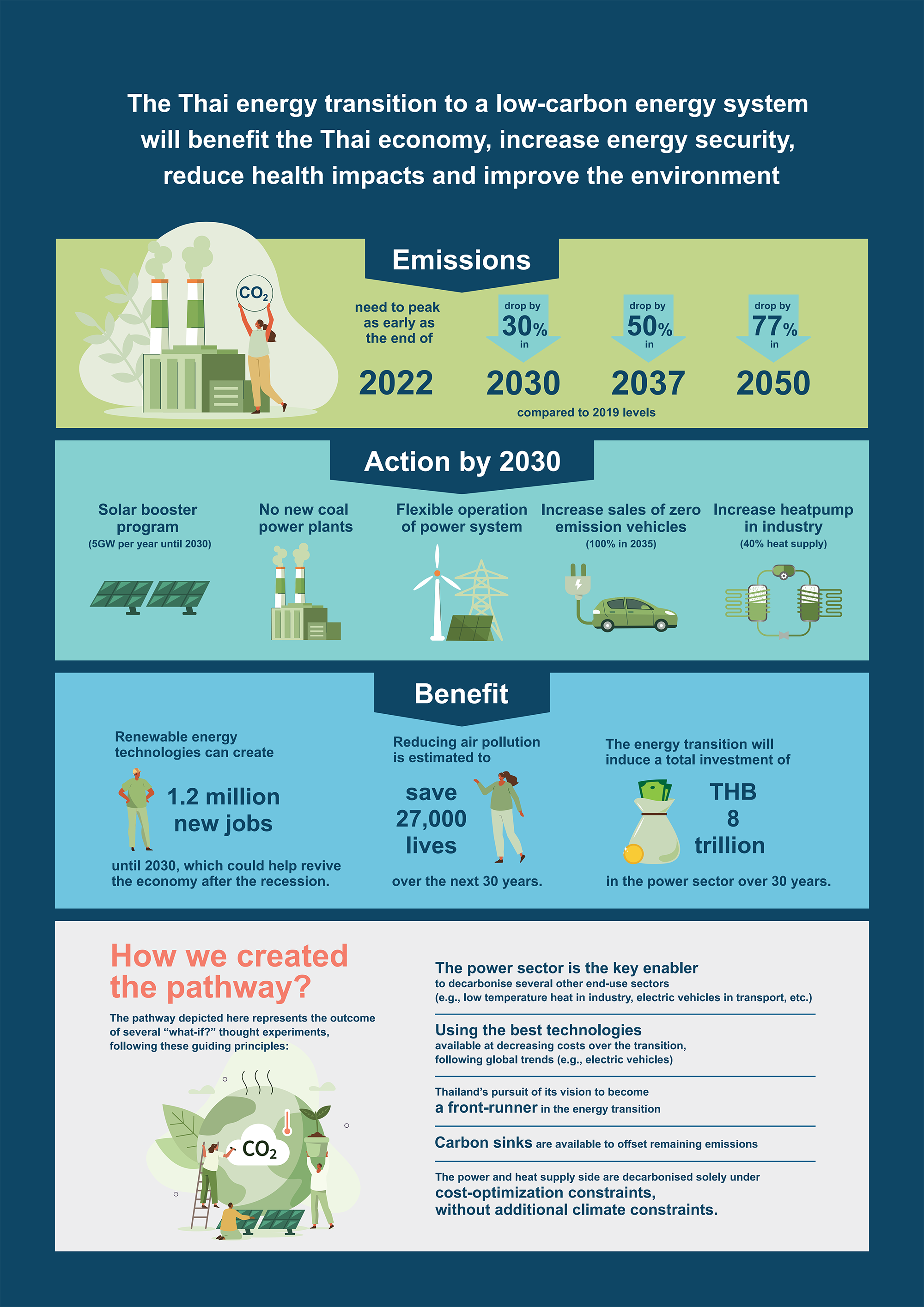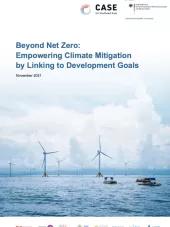In November 2021, Thai Prime Minister announced pledges to reach carbon neutrality by 2050 and net-zero greenhouse gas emissions by or before 2065, embracing global trends. With the new target, Thailand is reviewing its long-term strategy for reducing emissions and the national energy plan.
Clean, Affordable and Secure Energy for Southeast Asia (CASE) consulted extensively with Thai energy and non-energy stakeholders and created a pathway for the energy sector to reach carbon neutrality. The pathway represents the outcome of several ‘what-if’ experiments, following guiding principles of power sector as key enabler to decarbonize other sectors, deployment mature technologies, Thailand pursuit to become front-runner, and availability of carbon sinks to offset remaining emissions.
The report identifies five key actions by 2030 to put the energy sector in a decarbonization pathway: solar booster program (5GW per year), no new coal power plants, flexible operation of power system, and electrification of transport and industry through electric vehicles and heat pumps, respectively.
By embarking on energy transition, Thailand can create 1.2 million new jobs until 2030 in the renewable energy sector, reduce air pollution estimated to save about 27,000 lives over the next 30 years and induce total investments of around THB 8 trillion in the power sector until 2050.





